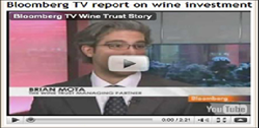Done year on year, in theory at least, the process not only ensures a household’s supply of excellent wine but becomes self-financing thanks to the drink’s propensity to increase in value.
But the wine market has changed. It is less the pursuit of leisured gentlemen with their own cellars and more an investment market similar to those where other commodities are traded for profit.
Several factors have driven the change, market watchers say. Prices of the most widely collected and traded wines – mainly bordeaux – rose sharply in the first decade of this century, attracting buyers who were less interested in the substance than in the profits they seemed able to generate. Another factor is growing demand from Asian buyers.
“The main driving force of the rapid growth has been the huge demand from Asia,” said Pete Goss of Richard Dawes Fine Wine, a specialist merchant. “Asian markets tend not to be driven by speculators, but by drinkers. As more of the top wines are consumed earlier and earlier, stocks are declining at a faster pace. We are seeing more interest from China, where there are an almost unlimited number of wealthy buyers, especially for premium bordeaux. Auctions in Hong Kong fetch prices well above the UK market.”
Between 2003 and 2011 prices of the most sought-after wines rose by more than 250pc. But in the past two years they fell back by almost a third. This was due to the global downturn in all assets, Mr Goss said. “There was a delay with wine, which continued to rise in price as we went into the financial crisis. But eventually the downturn did have an effect.”
Even so, the price of fine wines – as measured by Liv-ex , a benchmark index based on sales prices of the most sought-after 100 wines – is up by more than 150pc over 10 years. And prices appear to be rising again. Liv-ex , which is based in Britain but draws its data from global sales, points out that while its primary bordeaux index fell between 2011 and 2013, prices of other wines remained stable or grew throughout the period.
Rising prices were good for wine merchants and their customers but also attracted fraudsters into the market, with implausible promises of quick profit and bogus schemes often involving the sale of wildly overpriced wines. Sometimes investors parted with money and ended up with no wine whatsoever.
This led to a string of high-profile court cases and warnings from various authorities, including the Metropolitan Police, which says: “As with all types of business, there are rogue wine traders who are intent on conning people out of their money.” It warns against “aggressive sales” and promises of “guaranteed returns”.
By 2012 it was estimated that private investors had lost a total £100m in wine scams operating in just the four previous years.
The financial watchdog, the Financial Conduct Authority, also has concerns. In June this year it banned the promotion of collective funds – structured as unit trusts,
??
??
But the wine market has changed. It is less the pursuit of leisured gentlemen with their own cellars and more an investment market similar to those where other commodities are traded for profit.
Several factors have driven the change, market watchers say. Prices of the most widely collected and traded wines – mainly bordeaux – rose sharply in the first decade of this century, attracting buyers who were less interested in the substance than in the profits they seemed able to generate. Another factor is growing demand from Asian buyers.
“The main driving force of the rapid growth has been the huge demand from Asia,” said Pete Goss of Richard Dawes Fine Wine, a specialist merchant. “Asian markets tend not to be driven by speculators, but by drinkers. As more of the top wines are consumed earlier and earlier, stocks are declining at a faster pace. We are seeing more interest from China, where there are an almost unlimited number of wealthy buyers, especially for premium bordeaux. Auctions in Hong Kong fetch prices well above the UK market.”
Between 2003 and 2011 prices of the most sought-after wines rose by more than 250pc. But in the past two years they fell back by almost a third. This was due to the global downturn in all assets, Mr Goss said. “There was a delay with wine, which continued to rise in price as we went into the financial crisis. But eventually the downturn did have an effect.”
Even so, the price of fine wines – as measured by Liv-ex , a benchmark index based on sales prices of the most sought-after 100 wines – is up by more than 150pc over 10 years. And prices appear to be rising again. Liv-ex , which is based in Britain but draws its data from global sales, points out that while its primary bordeaux index fell between 2011 and 2013, prices of other wines remained stable or grew throughout the period.
Rising prices were good for wine merchants and their customers but also attracted fraudsters into the market, with implausible promises of quick profit and bogus schemes often involving the sale of wildly overpriced wines. Sometimes investors parted with money and ended up with no wine whatsoever.
This led to a string of high-profile court cases and warnings from various authorities, including the Metropolitan Police, which says: “As with all types of business, there are rogue wine traders who are intent on conning people out of their money.” It warns against “aggressive sales” and promises of “guaranteed returns”.
By 2012 it was estimated that private investors had lost a total £100m in wine scams operating in just the four previous years.
The financial watchdog, the Financial Conduct Authority, also has concerns. In June this year it banned the promotion of collective funds – structured as unit trusts,











